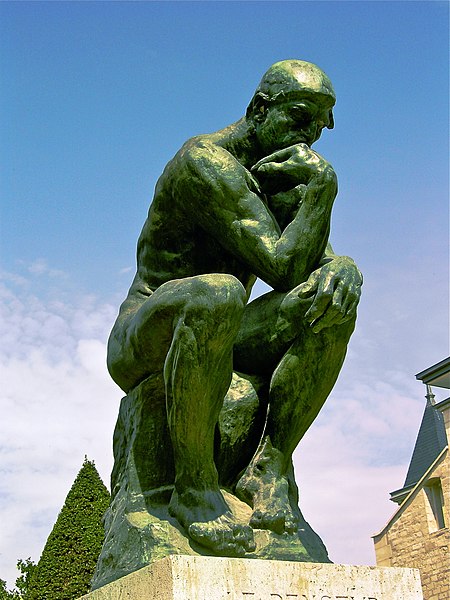 A majority of Republicans and Americans leaning Republican now think that colleges and universities are a negative influence on the country. Yes, that’s a big change–no matter the decades-old sniping by conservatives toward academia and institutions of higher learning. And before anybody starts chuckling, the shift has big implication all right–but more for the relevance of colleges and universities than for the fates of right-leaners.
A majority of Republicans and Americans leaning Republican now think that colleges and universities are a negative influence on the country. Yes, that’s a big change–no matter the decades-old sniping by conservatives toward academia and institutions of higher learning. And before anybody starts chuckling, the shift has big implication all right–but more for the relevance of colleges and universities than for the fates of right-leaners.
Reports Pew:
As recently as two years ago, most Republicans and Republican leaners held a positive view of the role of colleges and universities. In September 2015, 54% of Republicans said colleges and universities had a positive impact on the way things were going in the country; 37% rated their impact negatively.
By 2016, Republicans’ ratings of colleges and universities were mixed (43% positive, 45% negative). Today, for the first time on a question asked since 2010, a majority (58%) of Republicans say colleges and universities are having a negative effect on the way things are going in the country, while 36% say they have a positive effect.
Writing for Bloomberg View, Megan McArdle notes that “Conservatives in the media have been complaining about liberals in academia for a very long time — just about as long, in fact, as academia has been trending liberal.” But since then, she points out, much of academia has gone from sharply leaning toward one ideology to explicitly condemning the legitimacy of opposing views. Ejection of speakers from campus, violent confrontations, and efforts to shut down dissenters and free speech advocates on college campuses have become a regular feature of coverage of campus doings in recent years–and the results have been swift.
“Over the past two years, the share of Republicans and Republican leaners who view the impact of colleges and universities positively has declined 18 percentage points (from 54% to 36%),” says Pew. That’s an important shift, and a fast one.
Now, why should anybody other than those on the right (and those concerned about actual inquiry in an intellectually diverse environment) care if conservatives choose not to avail themselves of higher education in years to come? If Republican offspring choose to confine themselves to a blue collar future, so much the better for bien pensants who will have a clearer path to management gigs, right?
First, let’s not dismiss non-college track jobs. Starting a business and entering a trade remain great paths through life that don’t require an entry charge equivalent to a mortgage. Mike Rowe, of Dirty Jobs fame, points out that “You have right now about 3 million jobs in transportation, commerce, and trades that can’t be filled” and that pushing college as the only route to the good life is stupid.
That said, there’s no guarantee that the colleges and universities openly rejecting people who adhere to an assortment of mainstream political views will retain their gatekeeper role to plum jobs. Colleges gain wide respect so long as they are seen as educational institutions that open the doors to opportunity. If, instead, they’re perceived more as ideological institutions that can no longer guarantee opportunity, they’ll lose their cachet very quickly.
In the past two years, high-profile companies including Ernst & Young, Penguin Random House, and PriceWaterhouse Coopers have publicly deemphasized college degrees in their hiring processes. E&Y “found no evidence to conclude that previous success in higher education correlated with future success in subsequent professional qualifications undertaken.” The other companies made similar announcements. They won’t discriminate against degree-holders, they say. But they’ll happily hire those who haven’t bothered with the time and expense of college, and train them in-house.
How many other companies are making the same changes quietly?
Even today, some professions remain open to non-degree applicants. You can still become a lawyer in a handful of states without ever attending law school. You have to study under the guidance of a practicing attorney before sitting for the bar–basically, an apprenticeship. That practice could easily revive and spread if attending a school comes to be seen as an expensive distraction rather than a boon.
Actually, I think that developing a variety of alternative routes to jobs, careers, and adult life is a good thing of its own accord. If colleges and universities continue their transformation into monasteries of true believers, alienating half the population in the process, those alternatives will be not just good, but necessary.

 I have a favor to ask. Since you’re ending your relationship with the National Rifle Association, could you add my name to the list of companies, organizations, and individuals with which you won’t do business? You see, any objections you could have to the NRA apply to me many times over, and it’s only fair that you put the same distance between us.
I have a favor to ask. Since you’re ending your relationship with the National Rifle Association, could you add my name to the list of companies, organizations, and individuals with which you won’t do business? You see, any objections you could have to the NRA apply to me many times over, and it’s only fair that you put the same distance between us.






Recent Comments